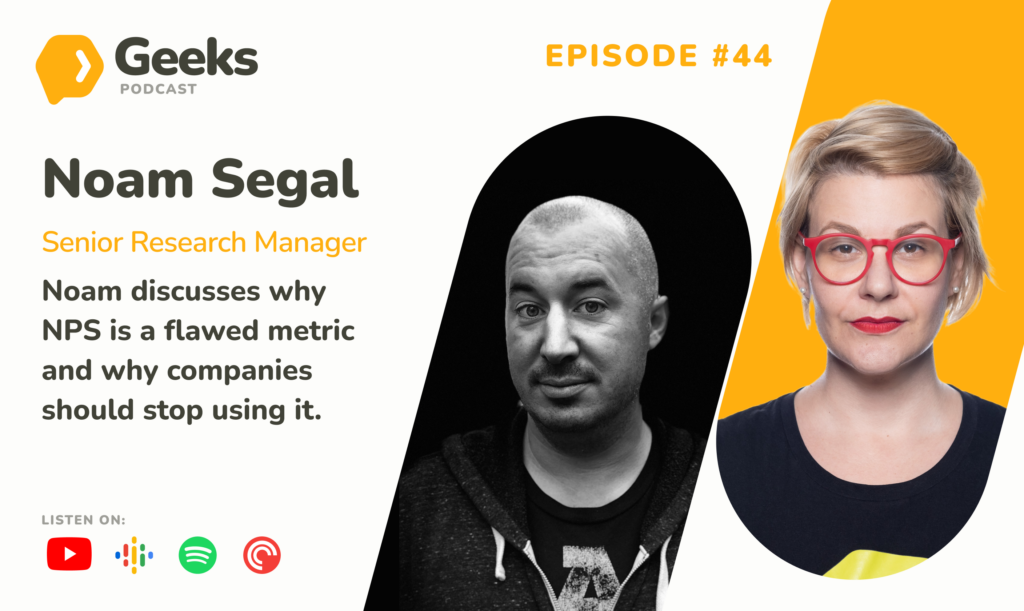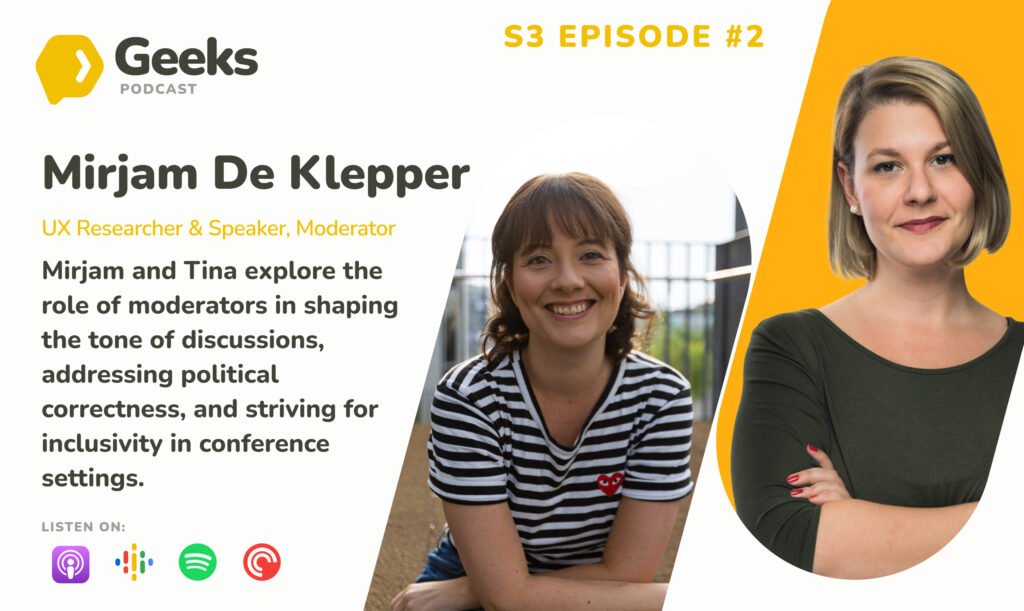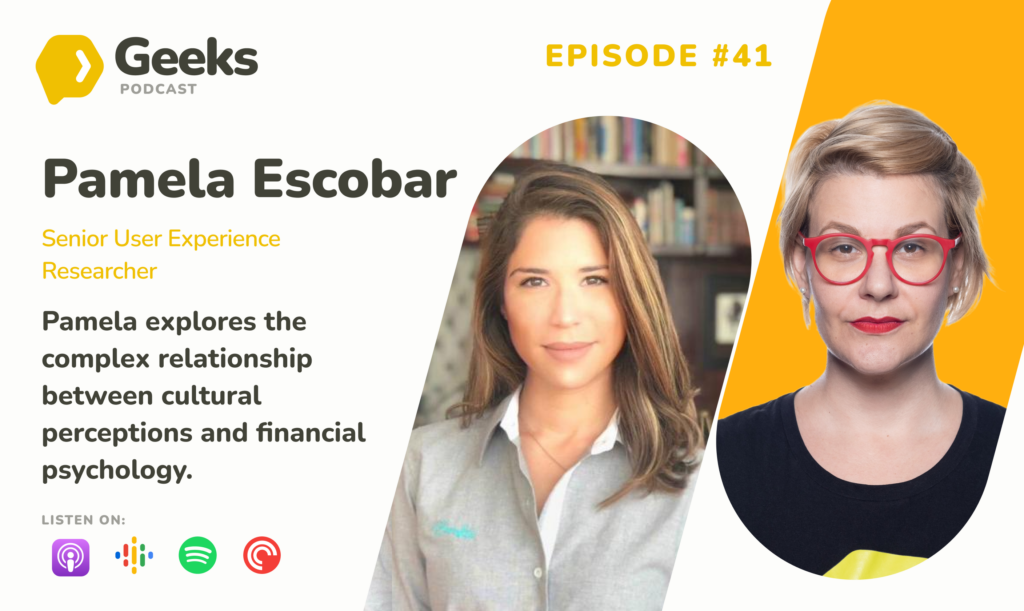If you have any tips on fantastic speakers from across the globe, feedback, or any questions, we’d love to hear from you too. Reach out to geekspodcast@uxtweak.com
Episode highlights
- 00:01:38 – Recent release of Research That Scales
- 00:02:56 – What inspired Kate to write a book on research operations
- 00:11:14 – Research operations as infrastructure
- 00:14:12 – Addressing the unique needs of large, complex research teams
- 00:20:51 – Strategy tips for a team of one
- 00:29:40 – Finding inspiration for research ops outside the UX field
About our guest Kate Towsey
Kate Towsey is an independent advisor, coach, and educator. For more than a decade, she has been at the forefront of ResearchOps. The inventor of the widely used acronym PWDR (pau·duh) for “people who do research,” Kate also wrote some of the earliest blog posts about setting up research operations, founded the ResearchOps Community, and launched the #WhatisResearchOps movement, putting ResearchOps on the map.
In 2019, she stepped back from the ResearchOps Community and started the Cha Cha Club, a members’ club for full-time ResearchOps professionals, which she runs to this day. Over twenty years, Kate has delivered operations in e-commerce, education, government, retail, and tech. She built and managed the Atlassian ResearchOps team, widely recognised as the benchmark for scaling research services and systems to hundreds of people.
Podcast transcript
[00:00:00] Tina Ličková:
Welcome to UX Research Geeks, where we geek out with researchers from all around the world on topics they are passionate about. I’m your host Tina Ličková, a researcher and a strategist, and this podcast is brought to you by UXtweak, an all-in-one UX research tool.
This is the 47th episode of UXR Geeks. I’ve sat down with Kate, an absolute powerhouse when it comes to research operations. She’s a strategic advisor and a coach. And she also is the author of Research That Scales, a new book that sets out to change how people think about research operations. We were talking about scaling research, building smart infrastructure, and how to define strategy as a team of one, as well, how to get inspired for real life. Tune in.
Hello, Kate.
[00:01:07] Kate: So nice to be here, Tina.
[00:01:09] Tina: Hello. Hello again. We met a year ago and we somehow didn’t manage to go out with the episode and a lot of things changed in between.
So my first question is when people are listening to us, they already know I do this a lot, a little bit combined one. So yeah, Kate, if you could introduce yourself and I know a lot of things were happening for you in the last year. So when you could enlighten us a little bit, enlighten us on what was happening and what is new.
[00:01:38] Kate: Yeah.
My name is Kate Towsey, and I am a research operations guru, some would say. I work as an independent advisor, a strategic advisor, and a coach. Sometimes I’ll do career coaching, things like that. But I’m also speaking of what has happened in the last year. I’m also an author now, like an actual official published author.
So since about 2020, I’ve been working on writing my book research that scales. And I finally got it written earlier this year and it’s out on the shelves this week, actually. It will be on the shelves by the time you publish this podcast. I know for the video part of this, you will, you’ll be able to see the actual book.
Here it is sitting on my desk. It’s pretty thick. It’s encyclopedic, but a recent professional review by a big reviewing company in the States said it’s encyclopedic, but written in such a way that it is. easy to read, which I was very relieved to have had them said about it. So that’s been taking up a lot of my year is getting that together.
And I’m really thrilled to finally have it going out there.
[00:02:38] Tina: I can imagine knowing you a little as you are a great storyteller, it’s a great and as a storyteller, but what brought you to writing a book? Because it’s not just I clean my house or I cook a meal.
But it’s a book. It’s a lot of work. So why did you write it?
[00:02:56] Kate: Yeah.
So first of all, I will admit, I was quite naive about what it means to write a book. I, it was a baptism by fire. I’ve written for most of my life that I can remember now everybody’s done that because most of your listeners will have learned to write at some point.
But in my early career, I was a radio documentary script writer. I then became a content strategist after my radio documentary work and which was one of my favorite jobs, I have to say being, speaking of podcasts and things like that. And after that I became a content strategist and a lot of my work in content strategy was more around tone of voice, around style, around communication.
And then moved into organizing CMS. And things like that, the more technical aspects of it, but I’ve always had a love for words. Um, In 2019, I think it was, I was walking this is going to be a bit named droppy, but I was walking along the Hudson river with Lou Rosenfeld. And he, at that point I’d been running workshops at the design ops, what was the advancing research, a conference in New York that year and the previous year. And he said to me – have you thought about writing a book about research operations? There isn’t a book about, and I think about research ops, and I think you would be the perfect person.
Bearing in mind that research ops had really only reached notoriety in May, 2018. With the drop of my tweet and I had loved writing and I thought writing a book is like writing 12 blog posts, right? 12 chapters. It is not. It’s nothing like that surprisingly, yeah, naive and not going to label myself obnoxious, but definitely naive. And I thought this is going to be great.
And so, I put together a proposal and worked on it and it was accepted. And I started writing in, I kid you not, I think it was around the 1st of February, 2020. And we all know what happened in February, 2020. Um, And of course lockdown kicked in and one would assume that that’s the perfect time to write a book.
But I don’t think that there is ever a perfect time to write a book. It is hard work, nevermind the context around you.
[00:04:57] Tina: And what is the book about? About what, and the reason why people, research leaders, but also the leaders in product should be reading it.
[00:05:05] Kate: I’d like to share that I, this is the published version that, that your listeners, that you listening would buy is the second draft, the second very serious draft. The first draft I wrote really about research operations I’ve, how I’ve used research operations, what it is, how to think about it to be able to deliver research things that, infrastructure and tools and all that sort of stuff that helps a research team to do more of its wonderful work. And I’d written this first draft, this is about a year and a half ago. And during that time, it’s when we’d have had about a year and a half or so of things really not going great.
Anyone listening now will know exactly what I’m talking about for the research industry and for many people in the broader UX space with all the layoffs and things like that. And so I was really struck by this moment that I’d somehow happened to write this book and where I’m writing this book.
I started in 2020 when things were going great. And everything’s scaling and more and more people being hired and snacks galore and people being flown around all over the world for holidays, not holidays, but like working trips and conferences and just, like real time in the sunshine. And suddenly we were, the industry, the profession was descaling at a rapid rate.
And I realized I could not write a book that really didn’t actually address not just what is research operations and how do you deliver research operations, but what do we even mean by scaling research? How is it that we’ve come to this place where we are rapidly descaling? What are the lessons that we can learn from it?
And how do we truly operate research organizations? Research practices, in fact, the word that I landed on in the end, so that they continue to grow sustainably. So the next time round, when an inevitable market or economic bump in the road comes along, that we as a profession, but and we as a discipline, more than even just a profession, because the discipline can live within product, within design, within academic teams as it and in other spaces, how do, how does research survive those bumps more easily?
And so I rewrote the book to really address that. And as a result of that, now I can really confidently say that whoever you are, if you’re in an organization that needs to learn and develop knowledge that is really usable, actionable knowledge about its customers, end users, whatever your context is, you’ll use different words for that.
So that you can do a better job for them. The book’s going to be useful to you because you’re going to need to decide how we operate as we grow. If you do something successfully which I hope you all will, like you’ll use your amazing research knowledge that you pick up along the way. And if you do really well with it, it’s likely that you’re going to grow because that’s what, like things that are successful tend to grow.
And so the question is right at the start, how do you grow? How do you grow well, so you can sustain yourself just like any business might want to think about how they sustain through growth.
[00:07:58] Tina: before we go to the scaling, because that’s very interesting.
angle on research ops, we also were chatting a little bit before we hit the recording button about the infrastructure of tech companies becoming huge, complex, and undeniably also the research practices are becoming huge and complex.
With all the democratization happening, with all the layoffs happening, because democratization is more of a need, how can research ops help with the infrastructure at first? And then we go to how it can be scaled?
[00:08:36] Kate: Yeah, I love that you’ve asked in that order because it should really be in that order.
Very often it’s assumed that research operations is administration, although I’m finding less and less these days. I’m finding that within the last five, six years Research operations folk are getting better understood to be more than just administrating recruitment. That’s a huge job in and of itself.
And it’s not just again, it’s a massive job, but having someone in your organization that is doing administrative work is not research operations. It is a job, but it’s called research assistance. It’s a job with a completely different title.
Research operations really is truly about designing and then also delivering the infrastructure that can help an entire team to do research or an entire organization in some cases to do research.
It’s exactly like civic design. This is an example I speak about in the book. We, there’s so many examples you can look at where in civic design you can look at an entire city where Someone has designed the way the roads work, including the traffic lights, the timing of the traffic lights where there are roundabouts.
I think we call them certain in England, we call them roundabouts, we’re in Australia or traffic lights, the placement of them where parking is and is not. All these things are very conscientiously designed by someone to allow the best flow of traffic. On the road, you can, there’s buses for public transport.
There might be trains or undergrounds depending on your city. And then there are people in their cars. And it’s not up to the government to provide everybody with their car or their driving license. It’s up to the individual to go and buy a car, look after the car, get it licensed, so it’s legal, make sure the tires are inflated correctly, make sure that they’ve got their driving license, that they’re legal on the road and they’re safe and they know what they’re doing.
It is very similar as one example in the research space and particularly in democratization, but even in bigger research teams, where it is the job of research operations to build the roadways, put all the infrastructure in place. Even put the training, get your license in place. Here’s the place to go and get your it’s an UK, for instance, here, I think it’s called it in Australia.
It’s a green slip. You’ll have something similar in your country. So that your car is, is working properly. So they’ll put all this infrastructure in place and then, but there’s part of it, they handle completely for you. None of us need to go out of the house and wonder is the road going to be there and well looked after, hopefully.
the potholes have been filled overnight, hopefully. Traffic lights are working, hopefully, and if they’re not, magically, someone appears in the middle of the road and directs traffic, all organized for us. But we have a responsibility to look after our own transport, our own mode of transport and our own use of it.
[00:11:14] Kate: And it should be that way in a well designed civic research space. There are certain parts that are handled centrally. By a research operations team who are designing that infrastructure and maintaining it, and they’ve got plan A’s and B’s and various things. And then there are aspects of it that need to be completely individually managed by the researcher or the designer.
I’ll share one last. example and, on your own, your listeners can just travel, walk around your city and you’ll have so much inspiration. You look at stadiums famous stories of Swift effect coming into town and she changes the whole economy while she’s in town.
But just imagine, you know, you’re trying to get. Hundreds of thousands of people into a stadium and make sure everybody arrives there on time safely and has a great time while they’re there and then comes out. And it’s the same sort of thing. You’re looking at how do we enable people to buy their ticket, arrive, come in, enjoy good sound, and leave safely.
And there’s all this sort of infrastructure around the flow of people and their experience that they have in that space. Operations does the exact same thing. So ideally you bring operations in. But well before you’re scaling, but if you are scaling already, then bring them in right away. Not to pick up the painful bits of administration that are holding researchers back from doing more research necessarily, but to take a bigger step back, to take like a service design or a systems design view and to understand the full ecosystem of research, not just recruitment or just, again, it’s not a just, massive job or, knowledge management, but what is the full civic environment of research look like?
And what systems do we need in place in terms of transport, in terms of buildings like a library, for instance, in terms of town hall spaces so that we can gather and learn from one another in terms of schools or universities for training, how to do research really well, nevermind who you are. What is the full civic society that we need so that people can learn well?
Which is ultimately what research is all about. That’s really just a word for learning. So they can absorb knowledge well, and they can absorb good quality knowledge as well, and then share it out with others so that they can reabsorb it. And then because there’s such a trust and belief in what they’re learning, they can take action on it.
That is really what research operations need to be doing.
[00:13:29] Tina: Love that example, because living in few cities, I can see the differences and when a city is well built and well designed and when not. with that comes to my mind because I see it in Vienna happening as well.
So how do we scale it if there are more people? If there are more people distributed not evenly? In some districts there are much more people than there are in different districts. And they have different needs, coming from expats, immigrants, coming from different backgrounds. This is where I would like to breach the scaling because it’s a massive job to scale something that is already so complex and to scale it then.
[00:14:12] Kate: A big piece of this is thankfully because we’re not running entire cities or nations, this would not work in a civic environment. It is where the metaphor breaks and everything, every metaphor does eventually break, but you have to prioritize. You cannot do everything.
One of the bits of research that I did when writing the book was to do a poll on LinkedIn that asked research leaders whether they had a research strategy in place, not strategic research, which is research about strategic initiatives within the organization, but a strategy for how their research organization was going to operate.
That is not necessarily a research operation strategy. This might get confusing. It’s simply a strategy about. How are you going to operate, which is to say. What kinds of researchers are you going to hire before you hire other kinds of researchers? Are you going to be focusing on qualitative or quant as well, or more quant than qual?
And if so, why? Maybe even within qual, you’re looking for a particular type of qual researcher because diary study is an incredibly useful methodology within your organization for some specific reason, and you think it’s going to be useful for the next three, four years. Most people don’t stay in a job these days.
I’m sure you’ll agree with me for more than three, four years. You’re pretty safe to hire some people and none of them are either going to change, evolve their skills or move on to satiate your strategy over that time. So it is about who do you hire? What kind of research are they doing? And for whom and what, like what sort of topics are they researching?
You cannot do it all. I hadn’t hunched about what the answer to this poll was going to be, because Over the years I’d run a workshop which will become a masterclass actually that I’m running around the world next year, a version of, called Designing a Research Operations Strategy. And this is, I started running it in 2018 and at each of my workshops would be around 50 senior research leaders from mega big companies and then some sort of mid level enterprise companies.
And a lot of them running large teams, at least 20 researchers, if not up to a hundred or 200 at that point. And as part of the homework, I’d said, bring some notes about your research strategy, because you cannot operationalize unless you know what you’re operating for. What are you wanting to achieve? And I was really stunned in the first couple of workshops, two or three workshops, because 90 percent of my attendees didn’t bring their research strategy or any notes around it.
And that’s because 90 percent of them did not have a research strategy at all. And so the. The modus operandi, the way of operating was simply when you get offered a headcount, you hire another researcher to do more research, oftentimes because you got that headcount through another part of the organization, giving you a research headcount and wanting a researcher.
So it was hire me a researcher so that they can do research for my organization. And so teams really just grew that way. Which is a very fair way to grow. I’m not questioning that at all, but then it’s about stepping back and saying, okay, so we’re getting this head count. How do we really utilize this?
How do we really make our value sticky within the organization? Which is a whole other conversation about value that we might get to at some point or not. Have I just lost my train of thought? I’m trying to remember.
[00:17:28] Tina: Research strategy.
[00:17:31] Kate: Thank you, Tina. Yes.
So yeah, that came up time and again, a few years later, I was doing a workshop in London and I was thinking, now this is about four years later, post COVID, I’m running this workshop again.
Surely it’s changed, but it had not, it was the same situation. This poll that I ran on LinkedIn was only, I think it was of the hundred and. I’ve got the numbers mixed up and I was, it was something like 150 people. I might have that wrong. It was a decent number of people who had answered. All the people that answered were senior level, heads of research, directors of research.
And yet still, again, only 20 to 25 percent of them had said that they have a research strategy in place. This is a profession who we’ve recently seen huge layoffs within. Now, I think we have to get on top of this because there is no point hiring in research operations that cannot do everything and is not going to deliver really sticky value within the organization, unless they can prioritize exactly where they put their attention in every way.
Even if you look at participant recruitment, you can, for sure, you can procure a tool, there’s many out there that will help make significant strides forward in participant recruitment, but it’ll be very general because they’re built for scale. back to your question about, there’s lots of different people in the space.
You, you can get these sort of generalist tools and people will be happy No one’s really that happy, but when you can start to zone in and into where in the organization do we really need to deliver value, whereas the, where are the CEOs really focused then you can start to say, oh, okay, so I’m going to make something up here.
We are focused on influencers who buy Gucci every month. That’s really where our next market is or young Gen Z or wherever we are right now on who spend time on Snapchat shopping. That’s where we’re really focused. That’s where we think the next money is. That’s where the CEO wants to put our attention.
It is a very particular recruitment strategy and set of tools and structure to recruit that kind of audience versus just your average mall shopper. And so if you take that approach with everything in operation, suddenly you know what to operationalize.
[00:19:36] Tina: Very good point with the strategy. And I also feel sometimes with my clients or before that I was liking the strategy and thinking about why I was liking the strategy, sometimes the lack of strategy is the non focus part of it. Of the product leaders as well. Where I then think, okay, the research leaders struggle.
But to put it into a more light, and now I’m going to branch out a little bit, is that I had a talk about a job possibility or gig in a. data driven company and the guy I was speaking to surprised me how well he had phrased his strategy because he was, Timo won, his second colleague went for maternity leave and he had to change a lot of things and he put a lot of thought into it.
And he knew exactly, the next colleague should be focused on quant, because we need that and that. We need to focus on these topics, I am doing this and this in the research ops. I was also surprised how well phrased or framed he had the needs in the research ops space. And. This is what brings me back to, because you were talking about big companies, big research leaders with 20 to 200 people of researchers.
[00:20:51] Tina: And I’m always thinking about people in the research team of one either freelancer or people who were just hired because somebody in the company was like, Oh, research is a good thing I heard. So we should hire a researcher or they have been left alone after the layoffs, which is a situation right now.
So what would be I wouldn’t say advice, but kind of strategy for these types of people, research team of one when it comes to priorities in their research ops. Yeah. And is it influenced by?
[00:21:25] Kate: Yeah, I wanna answer this question by starting off with the definition of strategy, because it’s such a widely used word and really not just my framing, but some really amazing people in the business world they’re framing too. So it’s not like I’m coming up with this incredible innovation in terms of the definition of strategy. It is really just planning how you’re going to solve the challenges that are before you.
I have done it myself where I’ve been asked to create a strategy for research jobs and like spun wheels for literally a year and a half. Because I’m like, Oh, I’ve got to come up with this future focused, innovative idea, like really like a business level idea of what I’m going to do next.
And I’m just so daunted by the whole thing. I don’t even know where to start. And it took me a while and doing a lot of contemplating and reading to realize, no, hang on a second. The strategy is simply how do I solve the problems in front of me?
And if that problem is a product manager or a product leader who doesn’t have focus, what is your strategy for solving that?
Like If that is the thing that’s standing between you and delivering, that’s your challenge to solve and come up with a plan. And so your strategy might literally be, you might not share it with them, but it might be have a meeting once a week. Make sure I speak in this tone, make sure I deliver these things, what is your strategy to getting more shape around that?
And when I realized that the world unlocked for me, because now I wasn’t trying to Deliver like the next spaceship, you know, anything amazing. I was just trying to solve my immediate problems and the problems that I felt. They weren’t just petty problems. They were problems that were going to unlock a whole new world for me, or we’re going to put me in a position where I would have suddenly access to.
Significantly more resourcing that I would have had otherwise. And that really shifted for me.
And if you’re a team of one that when you think of strategy that way, suddenly it can work for you too, because you might be going, I don’t need a strategy because I don’t have a whole lot of people and I’m just going to write this document for myself.
Write the document for yourself. It’s a very good idea. Know what you’re going to do. Do it. No, don’t think you’re going to go out there and find some magical different problems, deal with the problems you’ve already got right here. If it’s annoying you, I think strategy should be emotional. If it’s annoying you.
That’s a problem. Like it’s annoying you regularly. It’s a problem. Look at why it’s annoying you, what the reasons behind it, do some reflection, find out a way to solve it. If it’s something that’s making you really excited wow, this would be so cool. I wish I could do this thing. It’s probably making you feel that way because it’s something that’s going to be very good, hopefully for you and your wider organization.
And so look at how can you get over the blocks that might be standing in your way? How can you make the connections that might unlock that world for you that you want? And that’s when strategy becomes a fun and exciting tool and not this like document that you feel you’ve got to be fancy pants in.
[00:24:14] Tina: And I would even say write it down. Even the need is more. It’s bigger for a research team of one, because you are the only person who is going to talk about it in the organization.
[00:24:27] Kate: Yeah.
[00:24:28] Tina: And it should be somewhere captured where people can go back and you don’t repeat yourself a hundred times a day and remind people of the goals.
[00:24:36] Kate: Exactly. And something that when I do a lot of coaching around strategy and helping people produce the strategy, that’s really actionable. Um, And one of the things is to make sure that it’s not hand wavy word salad priorities in there, number one. Make it real, like what are you actually going to do if the founder or CEO or whatever of your company or your mother in law or whoever would happen across your strategy and they read your top priorities, they should be able to understand what you’re going to do and why you’re going to do it.
In two sentences, you can do I think there was even a book I figured called the mother test or something like that, remember it? Yeah. Yeah. Take that view with your strategy as well. They should be able to, by and large, understand it. It should be, it shouldn’t be so hand wavy.
The other thing is it should be really, I was challenging someone the other day in a session. If you say we’re going to make it easier to recruit participants. I’m really simplifying it down. What participants? Be specific, really specific. Those participants are these participants. And if you could subset those participants, which ones of those.
And so you’re really digging through, it’s not just we’re going to get better at communicating with product leaders. Are there any specific product leaders? Is there a group of them? That should be prioritized over others. And so make it really specific. And then the final tip I would say whether you’re a team of one or a team of a thousand, it doesn’t matter is all good business managers, even looking at Bob Iger, CEO of Disney, or, you know, I haven’t looked at Jeff Bezos strategy personally, but I’m sure it’s pretty much in the same camp.
There are a maximum of three priorities. Because that’s all anyone can ever really deliver and handle. In this context that we’re in right now, 99 percent of people I speak to working in companies, change is the order of the day. Things are changing all the time in this context, your strategy doesn’t, you know, your good strategy is to produce a strategy that is only like maybe one year in timeline or even six months because change is constant at the moment.
So don’t sit down and write a five year strategy when everything’s changing all the time, so even within your strategy, be strategic around what is around me at the moment. What is my environment like? What are the chances of me being able to live this one? I’m going to make a six month strategy because things change every four months at the moment.
I think that I will, even eight months, I think I could get six months through. So those are the really big things to think about. Make a practical, no hand wavy word salads be highly specific, maximum of three priorities. If you can get it down to two and you can do two fantastically well, do that.
And then the, sorry, the way, there’s one more thing that I would say. Okay. Is work out a lot of the time I see a strategy is written and then you go, Oh, great. You’ve written a strategy that needs four people to do this, to deliver this thing. Particularly in research operations. So you’ve got four head count coming your way.
No, no, No. Like, Actually we don’t hang on a sec. You’re a team of one and you’re fully booked. Like you are working overtime here. So how is the strategy going to get done? We’re hoping we’re going to find the four people, a strategy should never work on the wings of a prayer. You should have like, what are we going to do?
What can we deliver with the resourcing we’ve got right now? What could we deliver if along the way, and we’ve got a strategy for who we might make friends with to make this happen, get another person and what might we deliver the most ideal plan if we do happen to come across the four people that we think is possible, it’s not pie in the sky.
So a good way of doing this is to actually map out your keep the lights on your KTLO. Like what work do you have to do every week? Month, whatever timeline you choose to do it in. How many hours does it take across you or your team? And then you can see your debt, your, either your deficit or your credit in terms of time.
Oh, actually with the current resources, we’ve got four hours a week spare. What can we do with four hours a week? Or what do we need to drop that we’re doing right now, but it’s going to give us like two days. And what could we do differently with those two days? Now you’re suddenly negotiating and you’ve got something to work with.
Team of one, team of a thousand. This is something really important, particularly in terms of research operations, but really research operations is purely how you as a research team operate and everybody is operating. If you’re running a research team, you are operating. It’s just that you’re not research operationalized.
[00:28:59] Tina: I think the research ops as a discipline is more and more emerging and I think it will be more and more needed also with the democratization.
And to start that topic we would need like not a few hours but I also I’m looking around and listening to people and I feel that a lot of people either researchers or people who want to do the switch to research ops are looking into the topic and you are as an expert, as a guru, are definitely the right person to tell us where to look for all this information.
We were mentioning a book, Research That Scales, what are the other possibilities and what would you say they should be looking into to learn more about research ops?
[00:29:40] Kate: So I’ll start off with my things and then I’ll give you a curveball. There’s my book research that scales the research operations handbook, which will now be available on Rosenfeld media or on Amazon.
You can search my name or the book there. And that is, it’s a very large book. It’s got everything in it, including stuff I’ve spoken about today. In 2025, I’ll be traveling around the world itinerary to be, confirmed, but Paris is confirmed. For, I think it’s June the 5th, but that’ll all pitch up on my website in the next few months on katetowsey.com
And I will be really looking very closely at research operation strategy. And at the end of the day, it’s a one day workshop. You will walk out with a really good starter map of where to even go in terms of your research operation strategy, podcasts and various things like that. But after that, I would say people often say there’s not many books on research operations. There’s my one now, and there’s one coming out from Jake Burghardt in sometime in the next little while called Stop Wasting Research. So there’s some more and more books starting to be shaped around research operations.
But there is a wealth of information out there on research operations. It’s just not called that. you can read Richard Rommelt, any of his books on strategy, good bad, good strategy, bad strategy. That’s a really great book. Harvard Business Review. I’ve been a subscriber to Harvard Business Review for years and it constantly offers really good business thinking around how do you think about systems?
How do you think about running businesses? Ultimately within the research within an organization, your department is like a mini business within the business. It still needs to deliver value. It might not be tied directly to the bottom line. Research is not but it still needs to deliver the perception of value in, in the organization.
So business thinking is really critical, sign up to the hub business review, buy there. They’ve got I think it’s a five part series. It’s on my bookshelf behind me on business thinking. One of the books is best essays ever on strategy. Another good place to read books on service design.
Service design is absolutely amazing. Systems design, amazing research operations learning. when I was working at Atlassian still, I put my whole team through a service design course, a 10 week masterclass on service design, because it’s fundamental to everything that we do as operations. And so that’s to say, look around you.
Don’t just look at research, look for research operations, articles, and things. It’s good to do that, but get much more creative than that. Look at civic design. Like how do we think through civic design? Take inspiration from all over the place. If you do buy my book and you read through it, you’ll find that there are lots of these kinds of references in there.
And I encourage you, it will be a book within a book with it. You’ll be reading for 20 years about operations. If every time you come across a metaphor or an analogy to something, go and find something that’s within that space. There’s plenty of books as well. just librarianship. Information architecture, ethics and privacy, like these areas of academic interest and also commercial interest, professional interests have existed way longer than research operations have. ResearchOps has been around for 20 years. It’s a surprise, but it has in some of the forward thinking companies of our time, but librarianship has been around since ancient Egypt, right?
When libraries were there, there was so much knowledge and so much to learn from already.
[00:32:57] Tina: Thank you very much for this one, because. I even consider our podcast to be something of getting an inspiration and then digging into different topics, like theory like what you were saying, knowledge management, librarianship system thinking, design thinking and going down rabbit holes to actually find inspiration for research.
Not in the research space.
[00:33:20] Kate: Yeah. And even pedagogy, you know, like research is all about learning. So what can we learn from the field of learning?
[00:33:28] Tina: Beautiful.
Kate, thank you very much again. A beautiful conversation. I love your metaphors. I love your storytelling. I’m a great fan, thank you very much for your time.
[00:33:38] Kate: Oh, Tina. It’s such a pleasure.
[00:33:40] Tina:
Thank you for listening to UXR Geeks. If you enjoyed this episode, please follow our podcast and share it with your friends or colleagues. Your support is really what keeps us going.
If you have any tips on fantastic speakers from across the globe, feedback, or any questions, we’d love to hear from you too. Reach out to geekspodcast@uxtweak.com
Special thanks goes to our podcast producer, Jana Filušová, our social media specialist Daria Krasovskaya and our audio specialist Melisa Danišová. And to all of you. Thank you for tuning in.
💡 This podcast was brought to you by UXtweak, an all-in-one UX research tool.
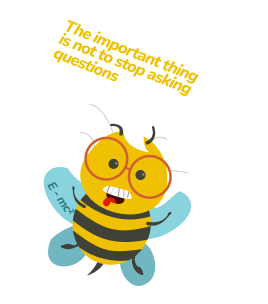


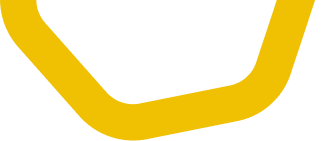







.webp)

